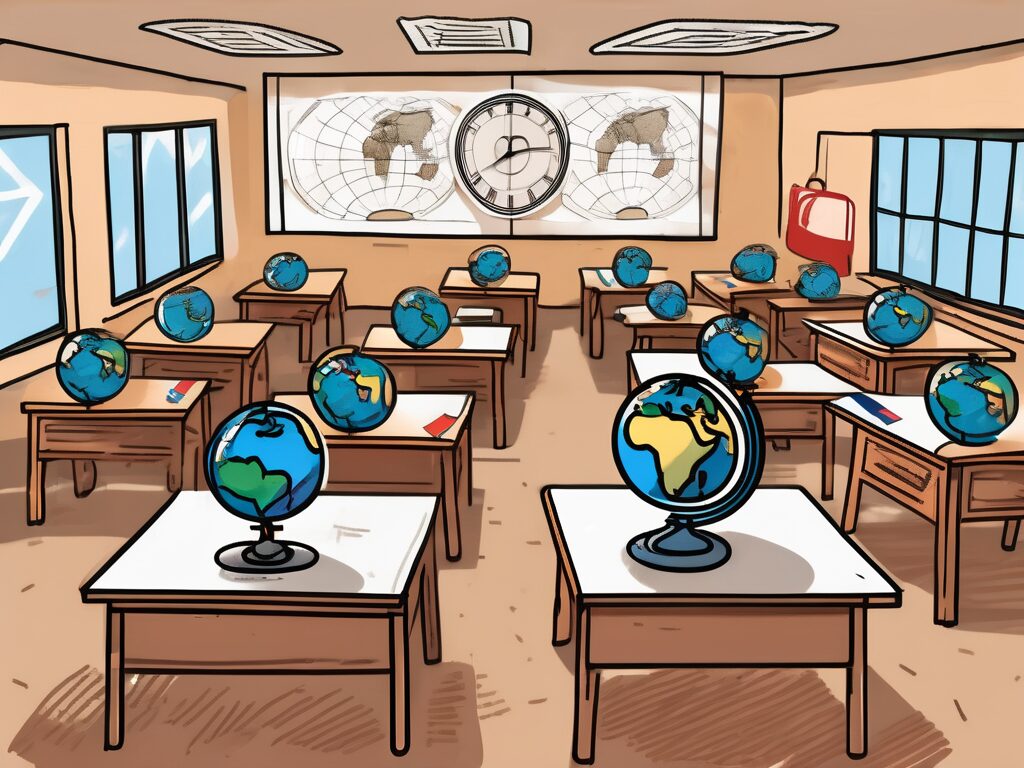The education sector in China is currently grappling with a significant shortage of international teachers. This issue is not only affecting the quality of education but also the country’s ability to compete on the global stage. In this comprehensive exploration, we will delve into the six primary factors contributing to this shortage.
Factor 1: Stringent Visa Requirements
One of the most significant barriers to attracting international teachers to China is the country’s stringent visa requirements. To work legally in China, foreign teachers need to secure a Z visa, which requires a bachelor’s degree and two years of post-graduate work experience. This can be a daunting task for many, particularly new graduates who are eager to start their teaching careers but lack the requisite experience.
Comparatively, countries like Thailand and Vietnam have less stringent visa requirements, making them more attractive destinations for international teachers. This disparity in visa requirements is a major factor contributing to the teacher shortage in China.
Factor 2: Language Barrier
Another significant hurdle for international teachers in China is the language barrier. While English is widely taught in schools, Mandarin is the primary language of communication in the country. This can make everyday tasks, such as shopping or using public transport, challenging for those who don’t speak the language.
Contrastingly, in countries like the Netherlands or Sweden, English is commonly spoken, making it easier for international teachers to acclimate. The language barrier in China can deter potential teachers, further exacerbating the shortage.
Factor 3: Cultural Differences
Cultural differences can also play a role in the teacher shortage. China’s culture is vastly different from Western cultures, and adapting to these differences can be challenging for many international teachers. From differences in food and social norms to teaching styles and expectations, these cultural differences can be overwhelming.
For instance, in Western cultures, teachers often encourage critical thinking and open discussions. In contrast, Chinese classrooms typically favour rote learning and respect for authority. These cultural differences can deter potential teachers, contributing to the shortage.
Factor 4: High Cost of Living
The cost of living in China, particularly in major cities like Beijing and Shanghai, can be quite high. While salaries for international teachers can be competitive, the high cost of living can eat into these earnings, making it less financially attractive to teach in China.
When compared to countries like Vietnam or Thailand, where the cost of living is significantly lower, China can seem like a less attractive option. This financial factor is another key contributor to the teacher shortage.
Factor 5: Political Climate
The political climate in China can also deter potential international teachers. Issues such as censorship, human rights concerns, and political tensions can make China seem like a less attractive destination for many.
Compared to countries with more open political climates, such as Canada or Australia, China can appear less appealing. This perception can contribute to the shortage of international teachers.
Factor 6: Lack of Professional Development Opportunities
Finally, a lack of professional development opportunities can also contribute to the teacher shortage. Many international teachers seek opportunities to further their careers, and if these opportunities are lacking, they may look elsewhere.
For example, countries like the UK and the US offer extensive professional development opportunities for teachers, making them attractive destinations. The lack of such opportunities in China can deter potential teachers, further contributing to the shortage.
In conclusion, the shortage of international teachers in China is a multifaceted issue, influenced by a range of factors from stringent visa requirements and language barriers to cultural differences and a high cost of living. Addressing these issues is crucial for China to attract and retain international teachers and compete effectively on the global educational stage.
Overcome International Teaching Challenges with The IQTS at UWE
Are you an educator looking to navigate the complexities of the international teaching landscape? The International Qualified Teacher Status (iQTS) programme at UWE is your gateway to overcoming the hurdles highlighted in this article. With the iQTS, you can enhance your professional development, meet stringent qualification requirements, and significantly improve your career progression. Join a community that expands your professional connections, deepens your understanding of global education systems, and offers flexible online study options to balance your work commitments. Don’t let the factors contributing to teacher shortages hold you back. Make Your Next Step with the iQTS programme and transform your teaching career today.

